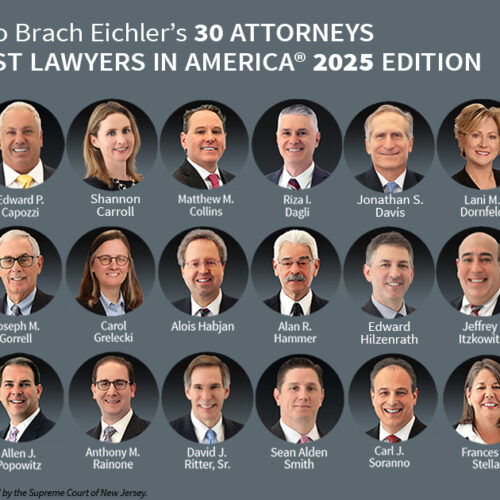Family Law Alert | Limit Posting Images of Your Children: NJ Supreme Court Declares Portion of the “Child Erotica Statute” Overbroad

5/28/2024
On May 8, 2024, the New Jersey Supreme Court declared a portion of the New Jersey “Child Erotica Statute” as overbroad and unconstitutional. The law, which was designed to protect the welfare of children, made it a crime “to otherwise depict a child for the purpose of sexual stimulation or gratification of any person who may view the depiction where the depiction does not have serious literary, artistic, political or scientific value.” N.J.S.A. 2C:24-4(b)(1).
In State v Higginbotham, the charges against the defendant arose from photographs he had distributed of a five-year-old girl wherein the defendant superimposed sexually explicit, obscene text over the photos. He also distributed a photo of his clothed but aroused penis next to photos of the child, superimposed with sexually explicit, obscene text. In all photos, the child was clothed. The defendant moved to dismiss the indictment arguing that the law was overbroad because the definition of “portray[ing] a child in a sexually suggestive manner” was overbroad. The trial court denied the motion. The appellate division reversed the trial court’s ruling and determined that the law was unconstitutionally overbroad. The Supreme Court chose to review the decision and granted Certification on the limited question of “Is the child erotica amendment, L. 2017 c. 141, to the child endangerment statute, N.J.S.A. 2C:24-4, which criminalizes portraying a child in a sexually suggestive manner, unconstitutionally vague and overbroad under the First Amendment?” Following review, the Supreme Court answered the question in the affirmative and declared the law to be unconstitutionally overbroad.
In its decision, the Court noted that there are narrow categories of speech that are historically unprotected by the First Amendment — fighting words, obscenity, child pornography, incitement, defamation, true threats, and speech integral to criminal conduct. From the Court’s perspective, child erotica was not included, but recognized that both obscenity and child pornography are relevant to this case. Under Miller v. California, something is obscene if (1) “the average person, applying contemporary community standards would find that the work, taken as a whole, appeals to the prurient interest”; (2) “the work depicts or describes, in a patently offensive way, sexual conduct specifically defined by the applicable state law”; and (3) “the work, taken as a whole, lacks serious literary, artistic, political, or scientific value.” 413 U.S. 15, 24 (1973). Whereas states may constitutionally proscribe the distribution of obscene material, possession of obscene material by the individual in the privacy of his own home is constitutionally protected. The Court went on to recognize that prior laws protecting children were specific to those images that “depict[ed] a child engaging in a prohibited sexual act or in the simulation of such act.” N.J.S.A. 2C:24-4(b)(1), but that the 2017 amendments modified the definition to criminalize images that “portrays a child in a sexually suggestive manner.” In finding that this definition was overbroad, the Court found that the law effectively would ensnare large swaths of first amendment protected images/conduct. In so doing, the Court declared the law unconstitutional. In its decision, the Court made sure to differentiate this finding from the continued laws criminalizing child pornography and that those laws remain.
The facts of this decision should make it clear to parents and users of social media that images of their children are being used by individuals for less than appropriate purposes and that our laws do not necessarily protect our most vulnerable people. One would be prudent to limit the publication of images of our children.
Click here for the full decision of State v. Higginbotham.
For more information on the Supreme Court’s decision on the Child Erotica Statute or any other Family Law matters, please contact:
Sean Alden Smith, Esq., Member, Family Law Services, at 973-403-3127 or ssmith@bracheichler.com













